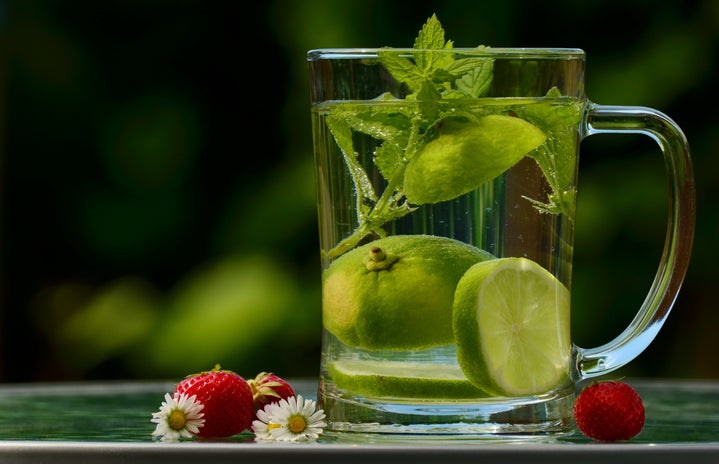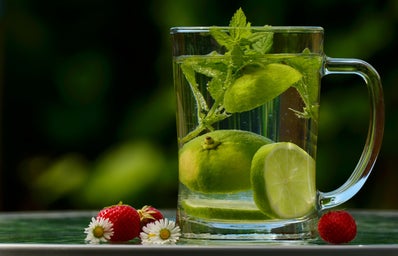Since this week is all about self-love, let’s start with the basics: snacks, cravings, and loving your body. I am guilty of being a constant snacker — I literally snack more times a day than I actually eat a full, balanced meal. As a college student, healthy snack alternatives can add up, and oftentimes it feels like it’s not worth breaking the bank for. With midterms coming up, it’s super important to focus on health. Changing your snacks from a can of Pringles to a can of raw nuts makes a lot of difference regarding what you’re feeding your brain.
If you’re on a tight budget, grocery shopping and snacking may seem like a daunting experience — and understandably so. Processed foods can really take a toll on our bodies, however, and ultimately, our minds. According to Medical News Today, “processed foods contain all sorts of artificial ingredients,” meaning that plenty of stuff in what you’re eating isn’t really food.
What I have come to learn is that there is no other way around finding healthy alternatives without reading the ingredients list. If you are anything like me, choosing processed, junky snacks saves time – and seriously, Pringles are just really, really good. Below, however, is a comparison of the ingredients lists between a regular size can of Pringles and all natural root chips.
If you’re as into salty potato chips as I am, but are looking for a healthier alternative, I highly recommend Terra chips, which are chips made of whole, all natural root veggies. As seen by the comparison above, Terra chips are decently low in calories while Pringles contain a whopping 150 grams per serving. And if your wallet is rather thin, a great cost alternative to Terra chips would be either off-brand (such as simpletruth) all natural chips, or learning to make your own at home!
Another reason snacking healthily is important is due to the fact that the majority of processed foods lack wholesome nutrients that are necessary for our diets. Whole Life Nutrition says: “Eating refined, processed foods over time can deplete the body of essential nutrients needed for it to function properly.” Similarly, Harvard Health explains that what you eat truly affects your mental state, whether it be your mood, sleep habits or stress levels. They write: “Serotonin is a neurotransmitter that helps regulate sleep and appetite, mediate moods, and inhibit pain. Since about 95 percent of your serotonin is produced in your gastrointestinal tract, it makes sense that the inner workings of your digestive system don’t just help you digest food, but also guide your emotions”.
Late night ice cream runs are definitely enjoyable with the stress of upcoming exams, but again, our brains and ability to work efficiently are affected by what we consume. If you have a sweet tooth and are an ice cream lover, I recommend staying away from your beloved Ben & Jerry’s and starting a new relationship with HaloTop. They describe themselves to be “low-calorie, high-protein, and low-sugar” ice cream, and even compare the nutritional value of their products to others such as Häagen-Dazs, Ben & Jerry’s and Dreyer’s.
Again, another cost alternative to constantly buying tubs of ice cream is to make it at home or in your dorm. My favorite alternative to ice cream is frozen yogurt. What I do is a buy a pint of my favorite low or non-fat yogurt, fix in some fruit and freeze it overnight. Although it might take some getting used to, you will become a master in saving money and turning to DIY or at home alternatives.
Another craving that I get throughout the day is the craving for a cold soda or juice. The difficult part about this is that a lot of the juices that come from the dispensers on campus are more or less sugar based or concentrated and not 100 percent all-natural juice. I tend to try to go for sugar-free and calorie-free seltzer water such as LaCroix. Another great way to quench your thirst and stay hydrated and vibrant is by adding fresh fruit to your water whether that be berries, citrus or even mint leaves. According to WebMD, water is a great alternative for replacing high-calorie drinks as “water can help control calories”, since it fills you up faster than snacking would.
As a continuous snacker and constant craver, I completely understand how strong the urge is to reach for whatever you have on hand. As a student, however, I need to be conscious of what I am I doing to my body and mind. While saving money and being cost effective can be a struggle, learning more DIY and at home recipes is the best way to start and allows you to alter your snacks to your dietary needs and personal preferences. Although I am still on my journey of mastering healthy snack alternatives, I guarantee you that even though it takes time and conscious effort, you will thank yourself.



